| |
NCEA newsletter - March 2019
- Review ESIA Kingfisher Oil Development - Uganda
- Review ESIA Mandalay Pyigyitagon Water Supply Project - Myanmar
- Next phase: SEA Development plan Sourou - Mali
- National SEA seminars with SEA training alumni
- Infographic SEA process
| |
| |
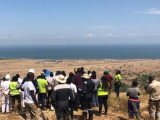 |
Review ESIA Kingfisher Oil Development - Uganda
24-28 February, Hoima, Uganda- The Kingfisher Oil Development Project is located at the borders of Lake Albert, and consists of oil production facilities supporting infrastructure, as well as a feeder pipeline to a planned refinery and an oil export pipeline. In an interactive workshop - with representatives from NEMA, lead agencies, the Norwegian Environment Agency and the NCEA - the ESIA report was discussed. An additional field visit allowed the group to get a good impression of the project site and to involve local stakeholders. Although the ESIA report is generally of good quality, the NCEA's advice contains recommendations on several issues, such as:
- Alternatives for project infrastructure;
- Biodiversity impacts, such as vulnerable species and habitats;
- Social impacts, related to autonomous and project related population increase;
- Unplanned events and emergency response.
More information...
| |
| |
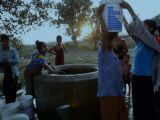 |
Review ESIA Mandalay Pyigyitagon Water Supply Project - Myanmar
The Pyigyitagon township in Mandalay has 250.000 inhabitants. The Mandalay City Development Council is proposing a Water Supply Project to sustainably and continuously provide potable water according to WHO and Myanmar standards. In total about 125,000 people, businesses and industries will benefit from the project. As part of the Dutch 'Private Sector Developmentt' programme, the NCEA has reviewed the ESIA. In order to start with this project, we recommend that additional assessment work should be undertaken to address the following important shortcomings:
- Health effects due to absence of waste-water treatment;
- Sustainable water supply system;
- Compensation of farmers;
- Access to water by non-registered settlers.
More information...
| |
| |
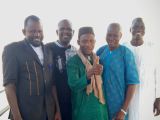 |
Next phase: SEA Development Plan Sourou - Mali
Bamako, 1-5 March - After adopting the SEA scoping decision in February, the Steering Committee of the Sourou region development plan is moving on to the next phase: prioritising the issues at stake and assessing their impact on sustainable development. As part of our coaching role in this process, the NCEA facilitated lively political discussion and dialogue between the steering committee and the civil servants responsible for the technical SEA process.
More information...
| |
| |
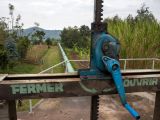 |
National SEA seminars with SEA-training alumni
In the past weeks, NCEA staff joined SIDA/Niras in some of their closing seminars of the international Strategic Environmental Assessment training programme. In Mozambique, Uganda, Rwanda, Myanmar, Bangladesh and Cambodia the NCEA gave various presentations on SEA but most importantly, listened to and learned from the 'new' SEA professionals in these countries. With enthusiasm and patience, this group implements SEA for large programmes and plans, or works on the introduction of SEA legislation. All driven by the belief that SEA contributes to sustainable development in their country. We wish the new SEA professionals all the best and hope to work with them in the future. In addition, we compliment SIDA/Niras with their important work for SEA capacity development.
| |
| |
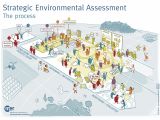 |
Infographic SEA process
A visual can sometimes say more than a 1000 words. Therefore the NCEA has developed an infographic of what a typical good SEA process would look like in practice. The NCEA intends to use it in its training courses, but anyone is free to use it. The most important messages in the infographic are:
- Link the SEA effectively to the planning process;
- Organise continuous exchange between decision making and information gathering;
- The same goes for the continuous interaction between the different 'groups' involved in the process - such as decision makers, initiators, stakeholders, consultants;
- Data gathering is not a goal in itself, but helps assessing impact and developing alternatives;
- Mobilise influencers to translate and communicate SEA findings to planners and politicians;
- Involve stakeholders in Monitoring and Evaluation.
'More information' brings you to the infographic and presentation.
More information...
| |
|